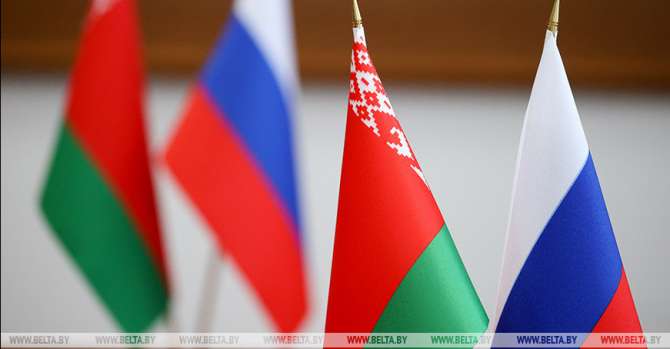Belarus-Russia military exercise named Allied Resolve 2022
17 January 2022, 14:20

Pavel Muraveyko drew attention to the ongoing militarization of European countries. According to him, the NATO contingent is strong enough to provoke and unleash any international conflict.
"The headline-making provocation caused by the so-called migrant crisis still continues," the deputy chief of the General Staff said. "More than 20,000 troops have been deployed in Poland, of which 15,000 are representatives of the ground forces. More than 12,000 servicemen have been deployed in the Baltic states. These are representatives of the army, police, border service."
According to him, the military build-up near the Belarusian border raises concerns and requires an objective response. "This reaction will be absolutely adequate and transparent. Together with our Russian colleagues, we will conduct a snap exercise of the Union State's response forces and means," said Pavel Muraveyko. “We gave it a name ‘Allied Resolve 2022'.
As it has been reported, Belarusian President Aleksandr Lukashenko approved the plan of a joint operational exercise of the Armed Forces of Belarus and Russia. The exercise is scheduled for February. It will be held on the western and southern borders of Belarus.
"As you know, the Russian president and I agreed in December last year to hold snap exercises on the western border of the Union State and on the southern border of Belarus, which is also the border of the Union State. Today we see the need to hold full-scale exercises in the western and southern regions," Aleksandr Lukashenko said.
“These should be full-scale exercises to drill a certain plan of action against the following forces: in the west (the Baltic states and Poland) and the south (Ukraine),” the president stressed.
In turn, Chief of the General Staff of the Armed Forces Viktor Gulevich pointed out that one of the risks to military security of Belarus is the presence of NATO troops in the territory of the neighboring countries. According to him, the grouping of the alliance's operations Enhanced Forward Presence and Atlantic Resolve near the Belarusian border consists of more than 10,000 people and over 300 tanks. In addition, due to the migration crisis provoked by Western countries, more than 23,000 people have been deployed on the territory of Belarus' neighboring countries along the state border in the northwest, west, and south directions.
“Our country has to respond to these challenges. In accordance with the decision taken by the presidents of Belarus and Russia, a comprehensive readiness test of the Union State's border protection response forces is underway. Control bodies, formations, and military units of both Belarusian and Russian armed forces are subject to testing,” said Viktor Gulevich.
During the comprehensive readiness test, quite a large contingent will be regrouped in the territory of Belarus. A number of tasks will be fulfilled, including those to protect the Union State in the southern operational area both in the airspace and on land. Tasks will also be about combating sabotage and reconnaissance groups and illegal armed formations. Plans are in place to test the military logistic system to ensure regrouping over long distances. “The activities will test the Union State military component to respond to risks and challenges to military security,” said the chief of the General Staff.
The combat readiness test of the Armed Forces will be held in two stages, explained Viktor Gulevich. “The first stage will envisage regrouping, taking initial positions on the operational directions. The second one will be the exercises to conduct combat training drills.

